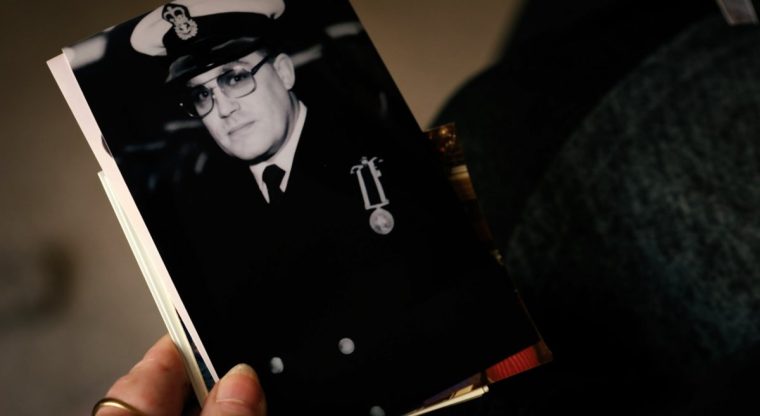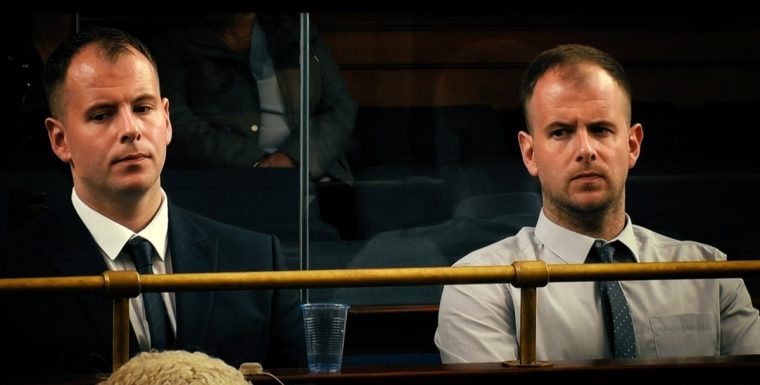This is true crime without any of the tawdry embellishments that give the genre such a bad name – and proper respect for the victim’s family
With so many true crime documentaries littering the TV schedules, how does a programme stand out? Not, it seems, by being more morbid and sensationalist than the rest, but (5 and Netflix take note) by being restrained, meticulous and respectful of the victims’ families. That is the case with BBC Two’s excellent recent The Moors Murders: A Search for Justice and now with the same channel’s absorbing Murder Case: The Vanishing Cyclist.
The case concerns 63-year-old former naval submariner Tony Parsons, who embarked on a solo charity cycle ride through the Scottish Highlands in September 2017. Somewhere along the 100-mile route from Fort William to his hometown of Tillicoultry, Parsons disappeared without a trace; the police remained baffled for the next three years despite extensive searches and numerous appeals.
And then, out of the blue in December 2020, a distressed caller phoned the police with new information. She claimed that Parsons had been killed by a drink-driver and his body buried in a shallow grave.

The anonymous caller turned out to be a pathologist, Dr Caroline Muirhead, who had been dating estate farmworker Alexander “Sandy” McKellar – the man she now named as the killer driver. Two months into their relationship, she had asked McKellar whether there was anything in his past that might affect their future together, and – amazingly – McKellar confessed all. He even drove Muirhead to the exact spot where he and his twin brother Robert had hastily buried the body.
If he had expected an amorous response to his openness, none was forthcoming. Instead, with admirable quick-thinking, the appalled Muirhead dropped an empty tin of Red Bull to mark the spot.
“I had spent three years coming to terms with the fact that my dad wasn’t coming home,” recalls the victim’s son, Mike Parsons. “And then, all of a sudden, one phone call flipped everything upside down.” Mike, his sister Vicky, and his mother Margaret are given plentiful airtime in the documentary. Their testimony is not an editorial afterthought here but woven into the very fabric of the film.
The culprits – described by the police as “hard-working, Jack the lad types” – are glimpsed only in police interrogation videos of the repetitive “no comment” variety. We also see them in the dock during the second episode; Murder Case is from the same Bafta-winning production company that makes Murder Trial and makes similar use of Scotland’s more lenient rules about filming in court.

Despite the full cooperation of the detectives involved, there is an inevitably retrospective feeling to the documentary – unlike BBC Two’s Murder 24/7, which follows the investigation in more or less real time. Nevertheless, this is a highly unusual and intriguing case, the opening episode concluding with the search for Parsons’ grave. Given the remote 10,000-acre sporting estate involved, needles and haystacks come to mind – except that here, police are assisted by a forensic soil scientist. She duly notices a recent disturbance in the peat.
From a legal perspective, the question is whether the McKellar brothers could be charged with murder, Parsons having hypothetically been alive immediately after their car hit him. But those arguments are for next week’s concluding episode, and no doubt many viewers will have Googled the outcome of the trial long before then. Spoiler alert, but the judge hands Sandy McKellar, who admitted to a reduced charge of culpable homicide, 12 years in prison, and five years for Robert.
Parsons’ visibly distraught widow, Margaret, says that her husband’s death is akin to being given a life sentence. This is true crime without any of the tawdry embellishments that give the genre such a bad name, with a proper respect for those left behind by the dead.
‘Murder Case: The Vanishing Cyclist’ continues next Sunday at 9pm on BBC Two. Both episodes are streaming on BBC iPlayer now
